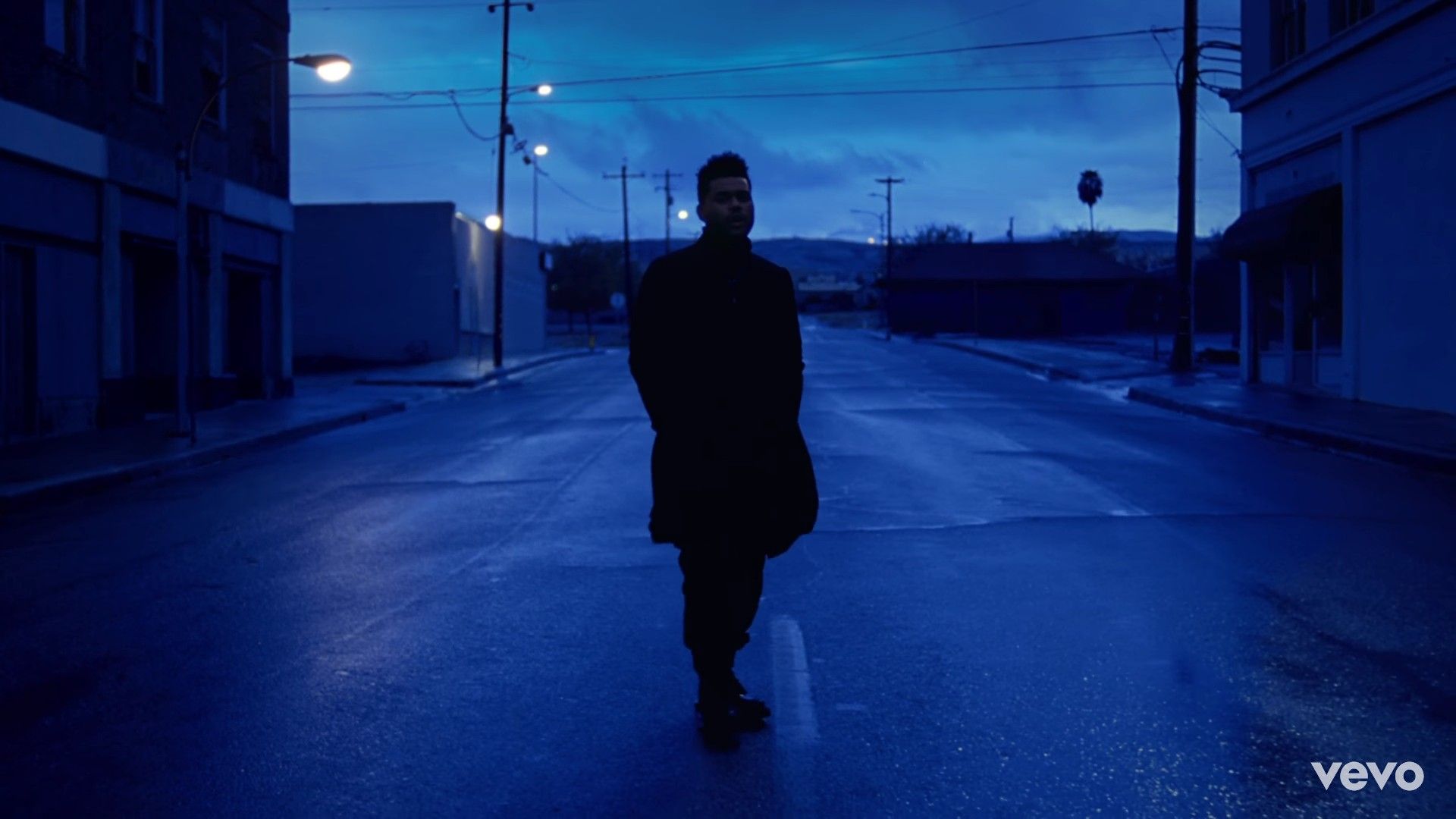By Courtney Ferry
On September 17, 2021, suit was filed in the U.S. District Court for the Central District of California against Abel Tesfaye (also known as The Weeknd) and his musical collaborators over his 2018 hit “Call Out My Name,” seeking profits, legal fees, and enjoinment from further infringing actions.[1]
The plaintiffs, Suneil Fox and Henry Strange, are musicians and producers who have worked for artists such as Drake, Lady Gaga, and Lil Wayne.[2] Together they are known as the electronic music duo Epikker, who created the song “Vibeking” in 2015 and obtained a registered copyright.[3] To show copyright infringement, the plaintiff must show that they own a valid copyright, and that the defendant infringed one of the exclusive rights granted to a copyright owner in Section 106 of the Copyright Act.[4] Typically, the latter part is proved through showing the substantial similarity between the works.[5] Epikker alleges that The Weeknd gained access to Vibeking through his DJ and playback engineer Eric White (known as PNDA), and created Call Out My Name copying elements of Vibeking that amount to copyright infringement.[6] Nicolás Jaar, another musical artist, is listed as a defendant but he clarified on Twitter on September 23rd that he is named because the track includes an authorized sample from his work “killing time,” but was not involved with production.[7]
Overview of the similarities and differences of the two songs in the complaint
Vibeking’s sound is described as “atmospheric and melancholic,” showcasing Epikker’s “characteristic production style.”[8] The song has the following characteristics:
(1) 6/8 meter,
(2) 118 beats per minute tempo,
(3) key of G minor,
(4) distinctive harmonic variation between the minor i chord and minor iv chord, and
(5) an instrumental hook using scale degrees 1, 1, 3, 5, and 4.[9]
The complaint states that Call Out My Name is also “atmospheric and melancholic,” with the following characteristics:
(1) 6/8 meter,
(2) 134 beats per minute,
(3) key of D# minor,
(4) repeated harmonic isolation between the minor i and minor iv chords, and
(5) a melodic hook using scale degrees 1, 1, 3, 5, and 4.[10]
The plaintiffs claim that the similarity in meter, tempo, minor key, harmonies, and hook all show quantitatively similar material, while qualitatively similar material is found in the features of “electronica ambience, pop, hip-hop, rock, and R&B” that both songs used to achieve the same overall feel.[11] They finish the comparison by stating that Call Out My Name includes elements that are “strikingly and/or substantially similar, if not identical, to original elements” from Vibeking.[12]
The Weeknd’s Access to Vibeking
To show copyright infringement without direct evidence of copying, the plaintiffs typically must show that the defendant had access to the work.[13] This can be displayed through a series of events that show the opportunity to view the work, or by showing wide dissemination of the plaintiffs’ work.[14] Here, Epikker is not showing wide dissemination since Vibeking is not currently available to the public.[15] Instead, the complaint recounts how around April 2015 Fox and Strange sent Vibeking to PNDA, who then sent the record to The Weeknd.[16] The Weeknd reportedly enjoyed the record, but nothing else came of it other than PNDA notifying The Weeknd that Strange and the production team wrote the track.[17]
If the plaintiffs can prove that the defendants did in fact have access to the record as claimed, then the court will decide whether or not the two records are substantially similar using the above examples.[18] Assuming both criteria can be proved, The Weeknd will likely be held liable for infringement unless they are able to come to an agreement through the court-directed alternative dispute resolution.[19] However, at this point, no response has been filed.
This is not The Weeknd’s first time facing a copyright infringement suit. There have been two other copyright infringement claims against The Weeknd over two different songs – the suit concerning “Pray For Me” settled in 2020 and the suit for “A Lonely Night” was recently affirmed on appeal in The Weeknd’s favor.[20]
[1] Complaint ¶ 74, (b), Parekh et al. v. Tesfaye et al., No. 2:21-cv-07488 (Cent. D. Cal. filed Sep. 17, 2021); Damian Jones, The Weeknd and ‘Call Out My Name’ Collaborators Face Copyright Lawsuit, NME (Sept. 22, 2021), https://www.nme.com/news/music/the-weeknd-and-call-out-my-name-collaborators-face-copyright-lawsuit-3052211.
[2] Complaint ¶ 40.
[3] The song is not currently available to the public. Id. ¶ 41; Justin Curto, The Weeknd Sued for Copyright Infringement Over “Call Out My Name”, Vulture (Sept. 22, 2021), https://www.vulture.com/2021/09/the-weeknd-sued-call-out-my-name-copyright-infringement.html.
[4] What are the Elements of a Copyright Infringement Claim?, BonaLaw PC, https://www.bonalaw.com/what-are-the-elements-of-a-copyright-infringement-claim.html#:~:text=The%20plaintiff%20in%20a%20copyright,that%20the%20defendant%20infringed%20it.&text=To%20establish%20ownership%20of%20a,is%20subject%20to%20legal%20protection (last visited Oct. 19, 2021); see 17 U.S.C. § 106.
[5] See Crystal Everson, Copyright Infringement and Substantial Similarity, LegalZoom (Jan. 19, 2021), https://www.legalzoom.com/articles/copyright-infringement-and-substantial-similarity.
[6] Complaint ¶¶ 47, 61.
[7] The sample is actually an interpolation, which is re-recording desired elements of the music to create the sample without using the original master recording. N (@nicolas__jaar), Twitter (Sept. 23, 2021, 6:43 AM), https://twitter.com/nicolas___jaar/status/1441035598253346828; see Debbel Egel, Copyright Infringement in the Music Industry, Symphonic: Blog (Oct. 2020), https://blog.symphonicdistribution.com/2020/10/copyright-infringement-music-industry/.
[8] Complaint ¶ 42.
[9] Id. ¶¶ 42-44.
[10] Id. ¶¶
[11] Id. ¶¶ 61-66.
[12] Id. ¶ 68.
[13] Scott Hervey, The Complexity of Proving Copyright Infringement, Weintraub Tobin: The IP L. Blog (Feb. 20, 2007), https://www.theiplawblog.com/2007/02/articles/copyright-law/the-complexity-of-proving-copyright-infringement/#:~:text=In%20order%20to%20bring%20a,elements%20of%20the%20plaintiff’s%20work.&text=Ordinarily%2C%20in%20order%20to%20establish,or%20copy%20the%20plaintiff’s%20work.
[14] Id.
[15] Curto, supra note 3.
[16] The complaint also states that they have done this in the past. Complaint ¶ 48.
[17] Id. ¶ 49-52.
[18] Hervey, supra note 11.
[19] Notice to Parties of Court-Directed ADR Program, Parekh, et al. v. Tesfaye, et al., No. 2:21-cv-07488-FLA-KES (Cent. D. Cal. filed Sept. 20, 2021).
[20] Bill Donahue, The Weeknd Settles Copyright Fight, Aims To End Another, Law360(June 3, 2020, 2:37 PM), https://www.law360.com/articles/1279259?scroll=1&related=1; Lauren Berg, The Weeknd Didn’t Swipe ‘Lonely Night’ Melody, 9th Circ. Says, Law360 (Oct. 8, 2021, 7:07 PM), https://www.law360.com/articles/1429729/the-weeknd-didn-t-swipe-lonely-night-melody-9th-circ-says.




